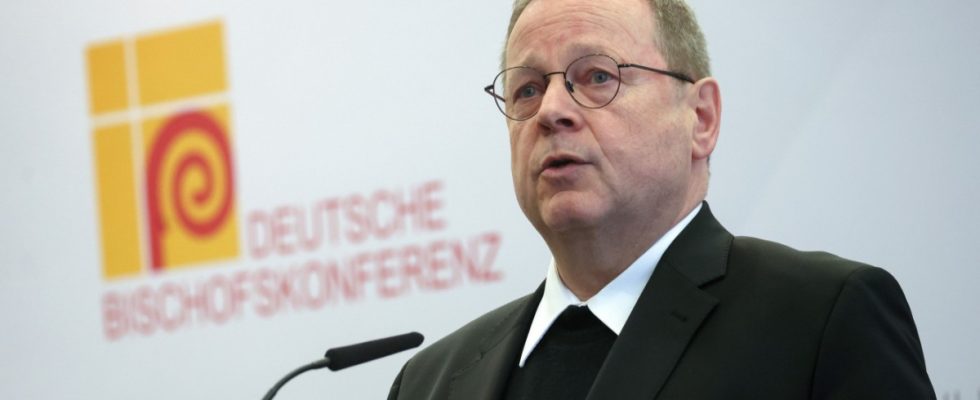After years of self-preoccupation, the German Catholic bishops finally wanted to address social issues in more depth at their spring general assembly in Augsburg: the state of democracy and the upcoming elections in East Germany, for example. Or with the ethics of peace, in view of the two-year-long Russian war of aggression against Ukraine.
But the Vatican is concerned with a completely different issue, namely the German church reform process. The so-called Synodal Committee was already set up in Essen last November, a committee of bishops and laypeople that emerged from the four-year reform debate and which in turn is intended to develop a long-term advisory body. The committee’s statutes should be voted on at the spring general meeting in Augsburg.
From Rome came a “Basta!” by letter
But Rome had this vote over the weekend by letter “Basta!” forbidden. A synodal committee is not provided for by current canon law and therefore a decision in this regard by the German Bishops’ Conference would be invalid, write the signatories, the head of the Roman religious authority, the head of the bishop’s authority and the Cardinal Secretary of State. The Pope expressly supports the letter. So Georg Bätzing, the chairman of the German Bishops’ Conference, had the item deleted from the agenda.
Bätzing said on Monday in Augsburg that he complied with the request “out of respect for those responsible in Rome.” “We will now use the time to discuss the objections.” But he was surprised at the timing right before the general meeting. “I have to say that we sometimes wait months to half a year for dates to be set,” said Bätzing. “I’m saying this honestly: we could be much further along, the talks could have been held long ago, and the responsibility for the delay clearly lies on Rome’s side.”
The Vatican’s main concern is the authority of the bishop’s office, according to Bätzing, but: “This authority is counted by abuse. This also applies to the authority of the Pope.” That’s why it needs to be put on new ground and that’s why reforms are important. The fact that sexual abuse has “systemic reasons” is “still a learning process in the universal church,” said the General Secretary of the German Bishops’ Conference, Beate Gilles.
Are people afraid in the Vatican?
The President of the Central Committee of German Catholics, Irme Stetter-Karp, also expressed her irritation at the letter: “We expect Rome not to undermine the good cooperation between the German bishops and the representation of the laity, but to value it and see it as a resource,” she said. “The Catholic Church in Germany will not have a second chance if it stops the Synodal Path now.”
The Münster canon law professor Thomas Schüller is himself a member of the Synodal Committee. “Rome is afraid of something that has no legal binding force at all, that’s quite remarkable,” he told the South German newspaper. “But even without legal binding force, a good idea can spread through the world like wildfire. That’s what Rome is really afraid of.”
The reform process is well supported theologically and Rome cannot do anything to counter it. “At the end of the synodal committee there would be a body that would contain the bishops in their official power, and that will now be brought to an end with pure authority.” In any case, according to Schüller, Pope Francis is acting arbitrarily: he has approved a statute for the Amazon region in which bishops have equal voting rights.
Schüller hopes for a third council, which could perhaps emerge from the world synod: “The First and Second Vatican Councils established the leadership primacy of the pope and the bishops, and we can’t get out of that anymore,” says Schüller. “This is not an early church principle, but an invention of the 19th century, and there is simply no blessing in it.”

